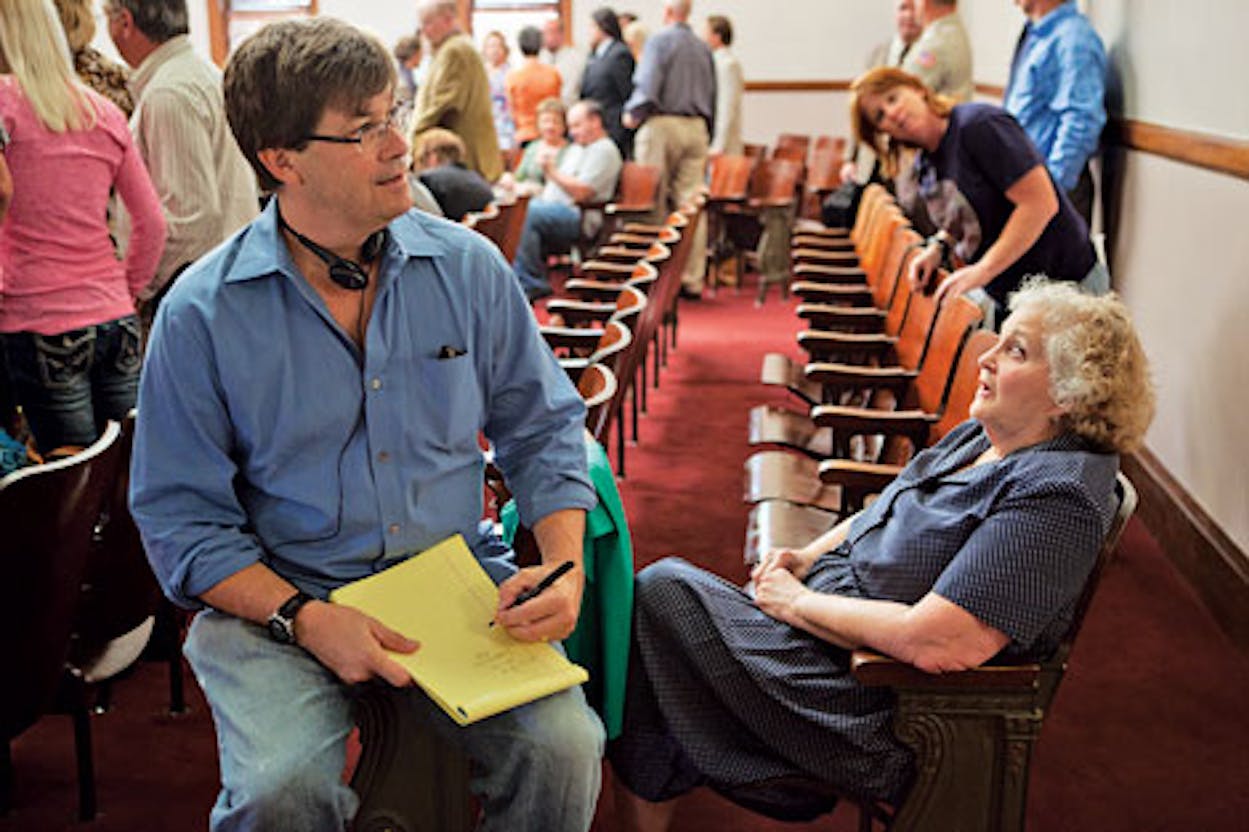Here is a partial list of the nice people Skip Hollandsworth has written about since he joined the magazine as a staff writer in 1989: Charles Albright, a serial killer in Dallas who removed his victims’ eyes; Marie Robards, a Fort Worth teenager who killed her father by poisoning his refried beans; Andrea Yates, the Houston mother who drowned her kids in the bathtub; Clara Harris, the Clear Lake dentist who killed her husband by running over him with her Mercedes; Peggy Jo Tallas, a Garland woman who robbed banks dressed as a man and died in a shoot-out at age sixty; Vickie Dawn Jackson, a sweet, soft-spoken nurse at Nocona General Hospital who murdered her patients with lethal injections; Susan Wright, the Harris County housewife who stabbed her husband 193 times in a fit of rage; and Dean Corll, a Houston man who terrorized the Heights neighborhood in the early seventies, torturing and killing at least 28 young boys.
At times, when he’s been desperate for a story or his editor has forced an assignment on him, Skip has been known to write articles about friendly, law-abiding citizens. But left to his own devices, he will go for the homicidal maniac every time. I’ve asked him about this before, and he always gives a variation of the same answer: “I’m interested in people whose lives get to an edge where they make criminal decisions and the stories of what happened in their lives that led them to that moment.”
Skip is unusually good at getting these stories. For two decades, people in bad situations all over Texas have been opening up to him. This is partly because he is a relentless, fearless question-asker. It’s not just that he’ll ask anyone anything; he seems to be unable to not ask everyone everything. And when he listens, he listens without judgment, with the kind of keen, sympathetic ear that encourages people to talk. (I speak from experience.)
It isn’t surprising that the stories he uncovers have often found a rapt audience in TV producers and screenwriters. NBC used a piece of his about the infamous murder of a teenage girl by two teenage lovers, David Graham and Diane Zamora (who were headed off to the Air Force Academy and the Naval Academy, respectively), as the basis for a TV movie, Love’s Deadly Triangle: The Texas Cadet Murder. CBS turned his Clara Harris story into Suburban Madness. CBS also turned an article he did about a young couple trying to rob a San Antonio bank into The Almost Perfect Bank Robbery, starring Brooke Shields.
Yet it’s rare for the screen versions of these narratives, once processed and refined by Hollywood, to bear much trace of the gritty reality that inspired them. At least until now. This month, a film based on Skip’s 1998 feature “Midnight in the Garden of East Texas” hits theaters. The twisted tale, about a small-town funeral director named Bernie Tiede who shot and killed his elderly female companion, is another classic entry in the Skip canon: colorful characters, inexplicable acts of violence, a stranger-than-fiction plotline. But in this case, Skip collaborated on the screenplay with Richard Linklater, an East Texas native, and the result is a movie that is a pure reflection of this state, right down to the dozens of non-actors cast in small supporting roles (one of whom is pictured with Skip above).
In “Lights, Camera, Carthage!” he tells the story of how the film was made and describes the surreal process of seeing the real people that he had come to know well transformed into movie characters—including, in a funny way, himself. The movie employs a documentary style in which the townspeople of Carthage directly address the camera, giving their opinions of Bernie and his terrible crime. And as you watch them talk, you can’t help but think that the person they are talking to is Skip himself, the great big sympathetic ear through which so many of this state’s darkest tales have been told.







